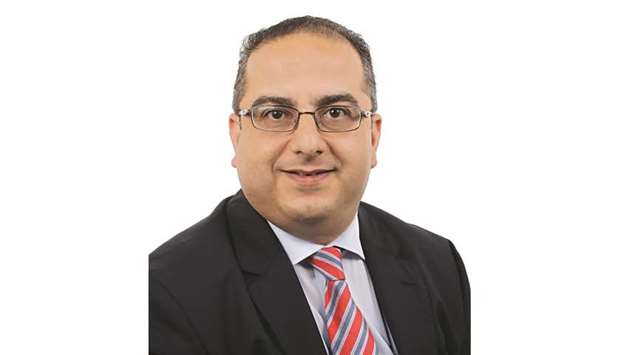“We are decidedly optimistic on the QSE (Qatar Stock Exchange) in the long-term. The Qatari market has built a strong base of very interesting and profitable companies, this has given us assurance that it will continue to be able to exceed investor expectation,” Talal F Samhouri – who is responsible for managing Qatari and the Gulf mandates, including the Doha Bank-sponsored QETF – at Aventicum told Gulf Times in an exclusive interview.
The first quarter of 2020 results showed a decline of around 20% year-over-year in net profits, but quarter-over-quarter showed a 10% improvement in bottom line, he highlighted.
Although some of the results were impacted by the temporary measures taken, he said looking forward, and expecting a normalised future, a lot of the stocks are currently undervalued, but stock price will eventually catch up with their true value once the process to clear the Covid-19 begins.
On the outlook for equity capital market; he said, “We can certainly expect to see a wave of privatisation in the coming period, subject to economic policies and market conditions as governments typically raise money from both local and international investors to pay down debt and broaden market appeal.”
Although a lot of sectors have been negatively affected by the twin problems of Covid-19 and the decline in oil prices, he said in the current situation, sectors that are defensive in nature and cashflow-rich, usually outperform the broader market; best sectors that are represented with these traits are the consumer staples and utilities sectors.
Highlighting that the QSE, similar to other exchanges around the world, was negatively impacted by the panic coming from this disease; he said once investors saw the prudent response from the government, they quickly regained confidence in it and increased in value.
The government had announced a financial package for the private sector to the tune of QR75bn, or 10% of gross domestic product. Additionally, there was QR10bn fund support to the QSE-listed companies.
On the QR10bn support, Samhouri said like most governments around the world, the support by the authorities in Qatar has given investors the confirmation that they take all the necessary measures to support the economy, the bond and stock markets.
“As we have seen in other markets and the region the support mechanism comes in the form of both monetary and fiscal support, we would expect similar policy action locally that will mitigate some of the risks and fears with various policy tools to manage the financial impact of Covid-19,” he said.
This could also include investing in the local market directly, via funds or exchange traded funds or ETFs, and additionally “we could also see direct equity investment in publicly listed companies as they raise new equity for liquidity and capital requirements; governments today have various tools at their disposal”, according to him.
Samhouri said the announcement of the aid package addresses not only the equity investors but also the wider economy.
The businesses can take a view on their capital expenditure and hiring as a major part of this package will be allocated to support the small and medium enterprises (SMEs) and helps with an improvement in liquidity within the economy and banking sector, he added.
“The QR75bn package will certainly boost the confidence of the local business community and give them visibility for the short term,” he said.
Highlighting that the Qatar Central Bank lowered rates after the cuts by the US Federal Reserve; Samhouri said, “We would expect to see some more stability in global capital markets to also have a positive impact on interest rates and liquidity as both banks and central banks implement these new policy tools.”


